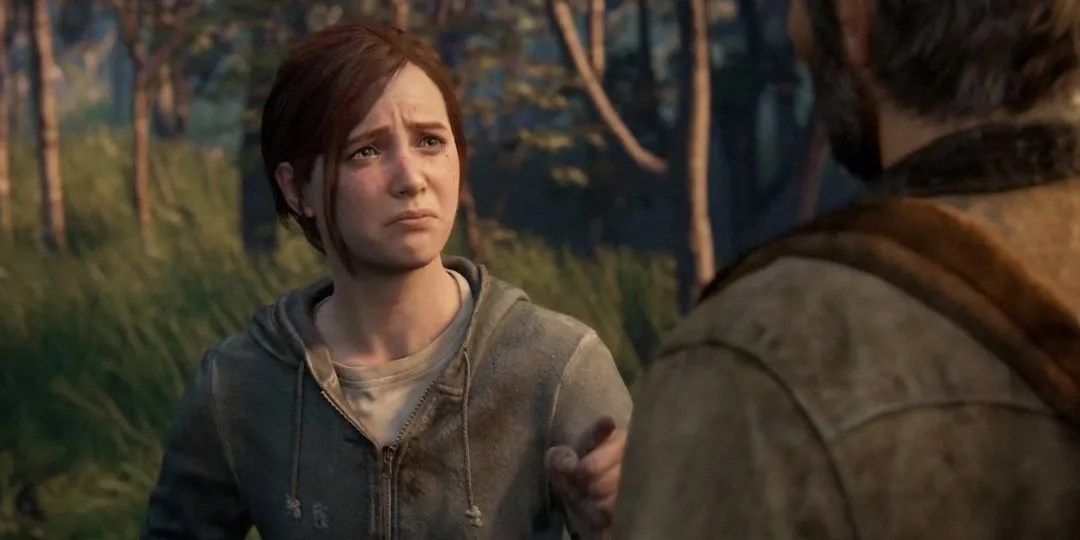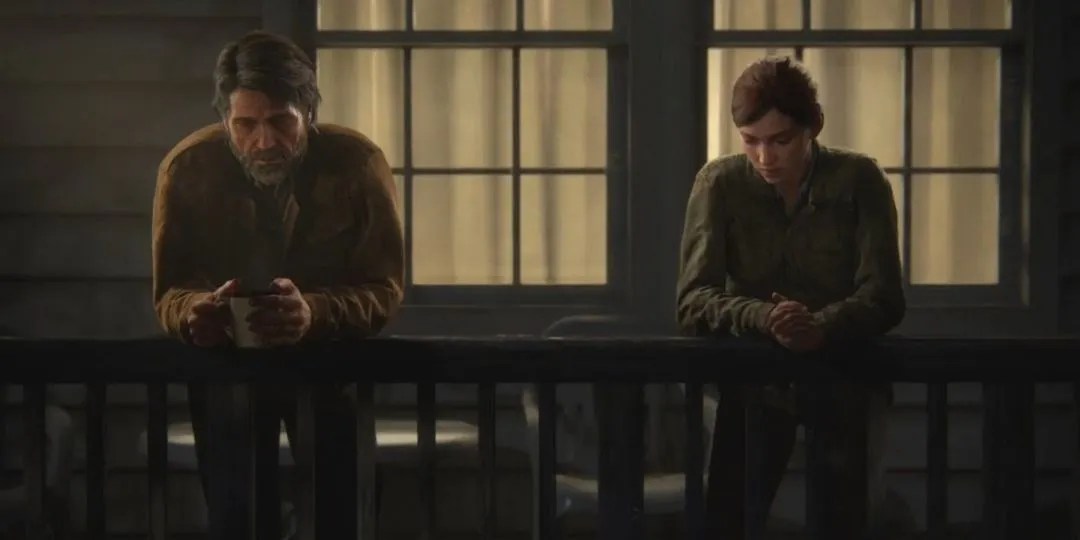A week after the Season 1 finale ofThe Last of Usaired, series co-creator Neil Druckmann (The Last of Us game series) tweeted, “Season 2 is already on its way!” The confirmation thatThe Last of UsSeason 2 was green-lit by HBO should come as no surprise — the series was beloved by critics, longtime fans of the games, and newcomers alike, and it broke viewership records for the network.
A faithful adaptation ofThe Last of Us Part 1, the series hit all the familiar plot beats, while also spending time to flesh out characters apart from Joel (Pedro Pascal) and Ellie (Bella Ramsey). Drawing fromThe Last of Us: Left Behind, downloadable content (DLC) that accompanies the first game, and the prequel comic bookThe Last of Us: American Dreams, the series delved into Ellie’s relationship with Riley (Storm Reid) — the way being a kid after the end of the world is possible, but heartbreakingly fleeting.

RELATED:The Last Of Us: ‘Left Behind’ Shows Why Ellie Is A Great Queer Protagonist
In Episode 3, “Long, Long Time,” game side characters, Bill (Nick Offerman) and Frank (Murray Bartlett), were the stars of a hauntingly beautiful survival-romance side story. In the finale, viewers even learnedwhat happened to Ellie’s mom, Anna(Ashley Johnson). All of this added emotional texture and a kind of expansiveness to a story that already boasts a lot of gut-punch poignancy and deft, grounded world-building. Clearly, slowing things down was a key facet of Druckmann and fellow co-creator Craig Mazin’s (Chernobyl) successful approach to adaptingThe Last of Usfor television.

In a genre that prizes heart-pounding action,The Last of Us Season 1wasn’t afraid to slow downand focus on its characters — a strategy that sets the show apart from other post-apocalyptic survival-horror fare. (The Walking Dead’s version of slowing down turned the show from must-watch Sunday TV to an absolute chore, for example.) This approach is also what will make or break the showrunners’ adaptation of 2020’s divisiveThe Last of Us Part 2.
Major spoilers for The Last of Us Part 2 below.
The Last Of Us Season 2: Picking Up Where Season 1 Left Off
Naughty Dog’s sequel game picks up several years after Joel and Ellie’s escape from the Firefly hospital in Salt Lake City. The surrogate father-kid duo have made a life in Jackson, the self-sustaining community established by Maria, the woman Joel’s brotherTommy settled down withafter his own Firefly stint. Although the two remain close, a heavy, unspoken truth rests between Joel and Ellie. At the end of the first game (and Season 1), Joel learns that the Fireflies’ search for a cure will lead to Ellie’s death.
Instead of presenting her with the choice — to sacrifice herself or not — Joel decides he can’t lose another person. Ellie has given the depressed, aimless smuggler purpose again. In the last act, Joel goes on a rampage, gunning down the Fireflies who stand between him and Ellie. He even kills the lead doctor — supposedly the only person capable of creating a vaccine for the Cordyceps brain infection. Joel’s actions can be read as selfish; sure, he saves Ellie, but he’s doing it for himself. Just like Marlene, the Firefly leader who doesn’t tell Ellie the whole truth about the deadly operation,Joel steals Ellie’s ability to choose.

The Last of Us Part 2opens with Joel confessing to his brother. “I can’t say I’d have done different,” Tommy admits. During a flashback, set well before the sequel’s present-day main story, Ellie gives Joel another chance to tell the truth. “You said there were dozens of people like me,” Ellie says. “I’ve never met another immune person before. Have you?” Joel dodges Ellie’s questions, claiming it’s not the time todredge up the past.
A little while later, Ellie finds a recording that tells her everything she needs to know: the only doctor that could have made the vaccine is dead, and the Fireflies were split over whetherto pursue her and Joel. When Joel catches up, Ellie gives him one last chance, threatening to leave Jackson if he isn’t honest. Joel admits that making a vaccine would’ve killed Ellie, so he stopped the Fireflies. Through tears, Ellie tells Joel, “We’re done.”

Is Joel In Season 2 Of The Last Of Us?
The game weaves the present and past together seamlessly, gliding around in time to best tell its story. The unique structure means players don’t see Joel’s confession, or his final conversation with Ellie, until well after his death, which happens in the first hour or so of the game. While the main, present-set story is about Ellie’s quest for revenge, the past threadsadd texture to Ellie’s turbulent, complicated relationshipwith Joel.
Not only is Joel’s death fraught because Ellie has yet to forgive him — if that was ever a possibility, anyway — but because the player also steps into the shoes of Joel’s killer, Abby. Much like Ellie, Abby’s journey to find Joel was motivated by revenge; her father was the doctor Joel killed in Salt Lake City all those years ago. Given how much time the player has spent with Joel and Ellie, it’s disturbing to play as Abby — even if the player disagrees with how Joel handled things. But that’s what makesThe Last of Us Part 2sucha sharp, innovative game.

Why The Last Of Us Season 2 Should Take Its Time
Given how complicit a player is in a character’s actions —be it Joel’s hospital massacre, or Abby’s thirst for revenge, or any of the number of distressing things Ellie does to avenge Joel — the wayPart 2’s story unfolds matters. Can this complex approach to examining the nature of revenge, of right and wrong, translate effectively to the more passive medium of television?
IfThe Last of UsSeason 1 finale is any indication, it will be a tall order. Something about Joel’s massacre of the Fireflies to save Ellie didn’t feel as warranted when it played out on the screen. Sure, the player doesn’t have much choice either, but maybe watching really is different from doing even in the confines of a survival-horror story?
Mazin and Druckmann have been pretty open about the fact thatPart 2’s story will span at least two seasons. In an interview withEsquire, Mazin revealed that the showrunners don’t feel constrained by the source material (though they also aren’t averse to killing off characters, either). To tell the story ofThe Last of Us Part 2,Joel’s death is necessary— at least ultimately. But that doesn’t mean the show should unfold in the same achronological way as the game. In fact, it probably shouldn’t.
By taking their time withThe Last of UsSeason 2, Mazin and Druckmann have the opportunity to tracethe events ofPart 2in chronological order. That gives viewers more time with Joel and Ellie — and a whole Joel-less arc of episodes (as Ellie tracks down Abby) for viewers to determine whether Joel deserves forgiveness. Time is something that slows down in video games; players have the luxury of exploring the worlds, restarting checkpoints, and pausing. In TV time, things are often sped up.
To build the kind of emotionally satisfying storyThe Last of Us Part 2features, Mazin and Druckmann need to change the adaptation’s approach. A wiser second season of The Last of Us would cover howJoel and Ellie’s relationshipplays out in real time; the moments players see inPart 2’s flashbacks would happen as they occur, instead of being revealed later on.
If Season 2 is all about settling in Jackson and the eventual reveal of Joel’s big lie, Season 3 (and onward) can more appropriately cover Joel’s death, and all the moral gray areas packed into the Ellie vs. Abby structure of the game’s main storyline. Who knows? Maybe Season 2 can introduce viewers to Abby, well before she ever meets Joel. In the world ofThe Last of Us, there’sno reason to rush into things— characters and audiences must simply endure and survive.
More:The Last Of Us: Episode 7 Was A Faithful Adaptation, But Is That A Good Thing?